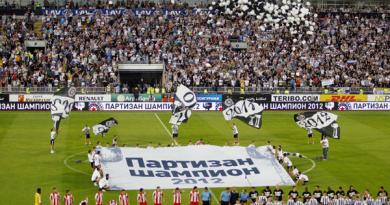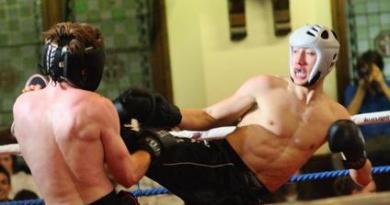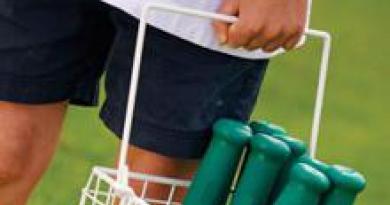1. Program E. 1.1. Search stage (RIT-F E). 1.2. Search in the natural environment (RH-FL E). 1.3. Search in technogenic blockage (RH-T Е). 1.4. Test of obedience and agility for the search stage, search in the natural environment, search in a man-made blockage (RH-F E, FL E, T E) - walking side by side on a leash, walking through a group of people, walking side by side without a leash, tunnel, driving through difficult terrain surfaces, carrying and handing over the dog, laying with exposure to distractions, overcoming a stationary boom, overcoming three different barriers. 1.5. Section "avalanche" (RH-L E). 1.6. Obedience and agility test for the "avalanche" section (RH-L E) - walking side by side on a leash, walking through a group of people, walking side by side without a leash, riding a
vehicle , carrying and handing over the dog, laying down with exposure to distractions, moving along the track, obedience at a distance, 1.7. Rescue in the aquatic environment (RH-W E) - fetching from the water (throw from the shore) from a distance of 15 m, supply of a life-saving equipment (rope) from a distance of 25 m, sending to a person from the shore from a distance of 25 m. 1.8. Obedience and agility test for Aquatic Rescue (RH-W E) - walking side by side on a leash, walking through a group of people, walking side by side without a leash, riding a surfboard, carrying and handing over a dog, laying down with distractions factors, boating, swimming a distance. 2. Program A. 2.1. Search stage for (RH-F A). 2.2. Search in the natural environment (RH-FL A). 2.3. Search in technogenic blockage (RH-T A). 2.4. Obedience and agility test for the search stage, search in the natural environment, search in the technogenic blockage (RH-F A, FL A, T A) - walking nearby without a leash, control at a distance, fetching on a flat surface, moving boom, horizontal ladder, tunnel, control at a distance, transfer and transfer of the dog, laying the dog down with exposure to distractions. 2.5. Section "avalanche" (RH-L A) - search with a dog, search with a technical tool. 2.6. Obedience and Agility Test for the Avalanche Section (RH-L A) - walking side by side without a leash, control from a distance, fetching on a flat surface, obedience from a distance, carrying and handing over the dog, laying down with distractions, moving along the track on skiing or snowshoeing, riding a vehicle. 2.7. Rescue in the aquatic environment (RH-W A) - supply of life-saving equipment from the shore from a distance of 25 m, sending to a person from the shore from a distance of 25 m, supply of life-saving equipment from a boat from a distance of 25 m, rescue of a person (start from a boat) from a distance 25 m, transportation of the boat without assistance (rowboat) from a distance of 25 m. 2.8. Obedience and agility test for the water rescue section (RH-W A) - walking side by side without a leash, control from a distance, carrying and handing over the dog, fetching from the water (throwing an object from the shore), riding a surfboard, steering from a distance , stacking with exposure to distractions, swimming a distance, riding a boat. 3. Program B. 3.1. Search stage (RH-F B). 3.2. Search in the natural environment (RH-FL B). 3.3. Search in technogenic blockage (RH-T B). 3.4. Obedience and agility test for the search stage, search in the natural environment, search in the technogenic blockage (RH-F B, FL B, T B) - walking nearby without a leash, control at a distance, fetching on a flat surface, moving boom, horizontal ladder, tunnel, control at a distance, transfer and transfer of the dog, laying the dog down with exposure to distractions. 3.5. Section "avalanche" (RH-L B) - search with the help of a dog, search with the help of technical means. 3.6. Obedience and Agility Test for the Avalanche Section (RH-L B) - walking side by side without a leash, control from a distance, fetching on a flat surface, obedience from a distance, carrying and handing over the dog, laying down with distractions, moving along the track ( skiing only), driving a vehicle. 3.7. Rescue in the aquatic environment (RH-W B) - supply of life-saving equipment from the shore (life buoy) from a distance of 40 m, rescue of a person (send from the shore) from a distance of 40 m, supply of life-saving equipment from a boat (life buoy) from a distance of 40 m , rescue of a person (message from a boat) from a distance of 40 m, transportation of a boat without assistance (motor boat) from a distance of 40 m. 3.8. Obedience and agility test for the water rescue section (RH-W B) - walking side by side without a leash, control from a distance, carrying and handing over the dog, fetching from the water (throwing an object from the shore), riding a surfboard, steering from a distance , stacking with exposure to distractions, swimming a distance, riding a boat.
Hello dear site visitors. MSMK deciphering sports - I am often asked what this means. In sports and in boxing in particular, there are different titles. For example, do you know well what is MSMK in sports?
Concept and conditions for obtaining
So MSMK is a generally accepted abbreviation for the title of International Master of Sports. In our country, in the sports field, this is the highest title.

Assignment options:
- This authority is vested in the federal organization of executive power in the sports field.
- At first, this organization of regional significance works.
- Documentation is agreed with the governing federation.
An athlete, in order to achieve this status, must:
- Participate in official international championships as part of the national team.
- Repeat an existing or set a new world or European record.
- Follow the discharge standards, if they are in a particular program.
- Reach high on last Olympics(1-5 positions).
- To be in the top three in the Cup (KM) or the World Championship (WCH) or Europe (EC).
- To be among the best (three places) at the championship of SIZM, VVI.
- Win a Junior World or European Championship.
- Win at any international tournament EABA, AIBA, and before that, win gold or silver of the Russian championship. And in the same year.
This is the decoding of MSMK in sports. This is the concept and conditions for achieving this status.
Conditions in the field of boxing

In boxing, as in other sports MSMK has the same definition. the fighter needs:
- Become a triumphant at the World Cup and European Championship among juniors.
- To be in the top five at the adult World Cup.
- To be in the top 8 list at the end of the Olympics.
Clause 2 applies only to men. P.3 - both men and women.
Another high rank
We have another high status of ZMS - Honored Master of Sports of Russia. Today it can be obtained if you represent a discipline that is in the All-Russian Sports Register.

Conditions for receiving:
- The first three at the Olympics in individual or collective competitions, or tournaments in gaming disciplines.
- Victory at the World Cup, European Championship, KM and European Cup (EC) Condition - the required number of points for qualification, at least 150. If the athlete represents a sport that is not organized international tournaments, he only needs to score these points.
- As an exception - for a huge contribution to the development of domestic sports, raising its status in the international arena.
- Achieve a world or Olympic record.
Conditions for accrual of the indicated points for the World Championships or KMs:
- If at least 35 countries participated in all stages. (20 is a condition only for women's tournaments, 15 - winter).
- A minimum of 10 participants competed in all programs.
If fewer countries participated in the WC or WCH, then points are awarded, as in the EC or EC.
Conditions for collecting points for the European Championship or KE.
- At all stages - at least 20 countries (12 for women's disciplines, 10 for winter).
- Minimum 10 participants in each program.
In Russia, there are cases when athletes received HMS in two disciplines, for example:
Chalaya T.V.
In kickboxing, her achievements are: victory at the World Championships in 1997 and 1999. Triumph at the European Championship in 1998 ZMS awarded in 2000
Her successes in boxing: first place at the European Championship and second at the World Championship in 2001. The year of awarding the status is 2003.
Ragozina N.Yu. Her successes:
In kickboxing - two world championships. In boxing - a triumph at the European Championship in 2003. For the first discipline, ZMS was awarded in 1998, for the second - in 2003.
Bureaucracy
The organizations that qualify for this status are:
The final authority in this matter is the Federal Russian governing body. Proposals and documents from organizations and figures lower in the current hierarchy are sent there. These are:
- Bodies with executive power at the level of subjects of the Russian Federation.
- Minister's deputies. They must have the appropriate authority.
- heads of departments of the ministry. They are in charge of the implementation of state policy in the sports field of the highest achievements.

Earlier in this bureaucracy (according to the decree of 1995), the appropriation was carried out as follows:
The athlete studied, served or worked. And from this place petitions were sent to:
- Organizations managing sports affairs at the state and regional level.
- All-Russian public sports associations.
The submission is necessarily consistent with a certain dominant federation (in a particular discipline, at the country level). The Ministry, taking into account its opinion, makes a decision. Then a special commission works, deciding to whom to assign certain ranks and titles. She draws her conclusion. The final verdict is the minister's prerogative. If approved, an appropriate order is issued.
An application for assignment must be submitted within a year from the moment when the athlete has fulfilled any necessary condition: prizes at the World Championships, the Olympics, etc.
The authorities may refuse assignment for the following objective reasons:
- Incorrect information was provided.
- The athlete was disqualified for at least 1 year: he used doping, was involved in dirty methods: participation in bribe matches, threats to opponents, etc.
- Current conviction for intentional atrocities.
The title may also be revoked by its holders. Basically, the same reasons appear here. The following items are added to them:
- The athlete is convicted already having ZMS. And the verdict went into effect.
- The athlete regularly violated sports ethics and training regimens.
- Use and distribution of doping prohibited drugs.
Comparison
When reasoning, which is higher than MSMK or ZMS, one can make an unambiguous answer - the First is higher. Although they are, in fact, issued by the same organizations. But the First can be awarded only in case of serious achievements in Europe or the world. The second is awarded on the basis of a special verdict, taking into account the overall sporting merit.
Conclusion
It doesn't matter what title you're applying for. The main thing is to achieve success in international championships. And statuses are already a matter of bureaucracy.
What do they give sports titles. Sport is an activity of people organized according to certain rules, thanks to which there is a comparison of physical or mental abilities. Most often, there is a comparison physical abilities person, for example, who will run the fastest distance or lift the most weight.
Sports titles - titles officially assigned by the state, the level of an athlete's career growth in different areas of sports, that is, his achievements personally or in a team.
Sports titles are awarded for achievements at official sports competitions, subject to the fulfillment of the established sports standards, as well as for pedagogical or coaching.
First Unified All-Russian sports classification(EVSK) was introduced in 1994. EVSK defines the titles of "Master of Sports of Russia" (MS), "Master of Sports of Russia in national species Sports”, “Master of Sports of Russia of international class” (MSMK) or “Grandmaster of Russia”. Contrary to popular belief, a candidate for master of sports of Russia (CMS) is not a sports title, it is only sports category, which requires regular (1 time in 2 years) confirmation.
Not many people know, but for the sports cultivated among the disabled, athletes are also awarded the sports titles “master of sports of Russia among the disabled” (MS) and “master of sports of Russia of international class among the disabled” (MSMK). In addition, in 1995, the regulation on the honorary sports titles "Honored Master of Sports of Russia" and "Honored Coach of Russia" was approved.
Some athletes really want to get sports titles without even thinking about what it will give them. We will not go into details and delve into the past, talking about what happened before, but we will highlight what is happening in our time.
On this moment, having an official sports title can give an athlete something, but not nearly as much as most people would like.
Firstly, a sports title can facilitate admission and study at a physical education or pedagogical university. Usually teachers are sympathetic to professional athletes, so they meet them on controversial issues.
Secondly, the presence of an official sports title gives athletes an advantage when applying for a job in state sports facilities. For example, if an athlete wants to go to work as a coach in a youth youth sports school(Youth Sports School), then the presence of a sports title will be a good plus in his resume, although the fact that they will take it without any sports merit is not excluded.
Thirdly, the presence of an official rank is taken into account when serving in the army, and is also a reason for receiving an increase in salary for employees of the FSB and other government agencies.
Most people can say that the first two points are not a good incentive to get a sports title, they will be partly right. In conditions modern life, benefits for admission to educational institution or a tick in the resume for employment - hardly anyone will be interested. But an increase in salary for each rank will be a very good bonus, for professional athlete.
Now we were talking about official sports titles, but as many already know, in addition to this, there are also titles of alternative federations. The difference between official and alternative federations is that the latter do not have state support, therefore, athletes competing there cannot receive sports titles officially recognized in Russia.
In Bodybuilding and especially Powerlifting, there are many alternative federations, whose activities are observed on the territory of Russia. In addition to the official federation called FBFR (IFBB), bodybuilding competitions are also held by WFF, NAC and NABBA. It is worth noting that for last years the number of tournaments held by alternative federations has decreased several times, including due to the fact that many athletes began to move to the FBFR, hoping to receive, in addition to medals, cash prizes that are given at some tournaments.
In Powerlifting, the situation is similar, in addition to the official federation of the FPR (IPF), competitions are also held by NAP, VITYAZ, SPR and WRP. All of the above federations have their own sports titles and categories, which are awarded for achievements in competitions. But unlike the title of Master of Sports of Russia, any titles of alternative federations do not provide the advantages that were described earlier, in particular, they do not give an increase in salary.
Nevertheless, the presence of any sports titles or victories in competitions in any sport carries certain benefits for the athlete, especially if he works as a coach. You may have noticed that in most sports clubs, employees have a published resume that lists the most significant achievements.
The presence of sports titles or victories in competitions in any federation, regardless of whether it was officially recognized or not, to say that a person has a certain level of training and experience in this sport, that is, in part, the presence of a sports title, is a confirmation of qualification specialist.
It is impossible to say with certainty whether ordinary people need sports titles now, or it is rather a relic of the past, which is useless in modern life. But it can be assumed that no matter what sport and federation an athlete competes in, a sports title, whether it is 3rd category, ZMS or just a place taken in some tournament, first of all, this is a pleasant memory of the past, for the person himself and people close to him.
Therefore, sports titles are something useful, as they give people positive emotions and an incentive for development.







